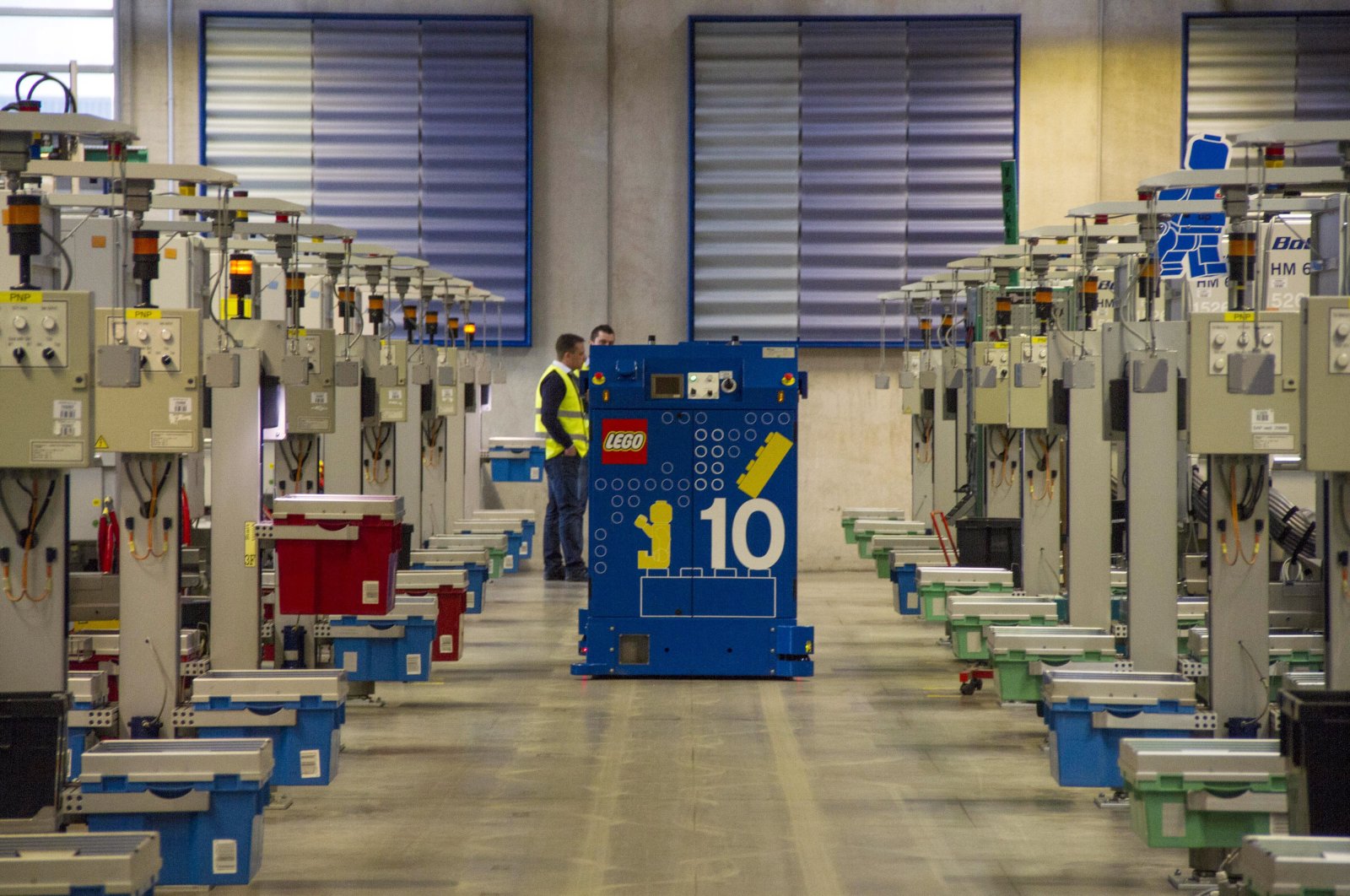
Journey through time with our exploration of factories, from the dawn of production in ancient Eridu to the high-tech marvels of today, unveiling the continuous thread of human creativity and ingenuity shaping our world
The place considered to be the world's first factory is the ancient city of Eridu, located in ancient Mesopotamia in the 18th century B.C., which is an archaeological site in Southern Mesopotamia.
Excavations conducted at this site revealed a complex where animal husbandry, agriculture and ceramic production took place. This complex became a center of production and is considered one of the earliest examples of the concept of a factory.
The complex in Eridu became operational as a center where raw materials were stored and processed, and the final output was produced. For example, mud and clay were processed here to produce ceramics and there were specific areas for processing and storing products. The center became a specialized place to organize production.
Therefore, this complex in Eridu is considered the world's first factory. However, it's important to note that the factory was not similar to modern factories; it was more of a center where production processes were concentrated.
Industrial production is closely linked to the emergence of modern factories and is generally associated with the Industrial Revolution in the 18th century in the United Kingdom. However, the history of industrial production includes important stages before this period.
The foundations of industrial production were laid with agriculture and the commercial sector advancements. In agriculture, innovations used in nomadic production facilitated increased production and efficiency.
In the craft sector, mechanization replaced manual labor and at certain periods, mass production began. For example, during this period, products in the textile industry were sent to weaving machines. Similarly, mechanization was adopted in the mining and iron industries.
However, the initial steps toward widespread industrial production were taken during the Industrial Revolution in the U.K. in the 18th century.
During this period, significant changes such as increased energy consumption, accelerated mechanization and the prevalence of mass production occurred. These changes marked the beginning of the modern era of industrial output.
The first modern factories are generally attributed to the Cromford Mill factory in the U.K. This factory was founded in 1771 by the British entrepreneur Sir Richard Arkwright.
Cromford Mill was a water-powered factory featuring the latest textile production technologies. The factory automated production processes using large spinning machines powered by water and other machinery for producing cotton thread. This transition from production based on manual labor to a factory environment using machines is an example of this period.
Cromford Mill exemplified the fundamental features of the modern factory system. It brought together concepts such as mass production, division of labor and the use of machinery. Therefore, it is generally considered the beginning of modern factories.
Notable factories
Tesla Gigafactory: Located in Nevada, U.S., the Tesla Gigafactory is a large facility used to produce electric vehicles. It operates on renewable energy sources and specializes in high-capacity lithium-ion battery production.
Ferrari Factory: Located in Maranello, Italy, the Ferrari Factory is the production center for the world-famous Ferrari sports cars. Visitors can observe Ferrari's production processes and closely inspect their legendary automobiles.
Boeing Everett Factory: Situated in Washington, U.S., this factory is the world's largest enclosed facility. The factory manufactures Boeing aircraft, particularly the 747, 767, 777 and 787 Dreamliner models.
LEGO Factory: Located in Billund, Denmark, is where the iconic LEGO toys are manufactured. The factory offers tours showcasing LEGO production and impressive LEGO sculptures.
Yakult Factory: Yakult Factories in Japan produce probiotic beverages. These facilities use automated production lines for Yakult production activities and offer tours explaining Yakult's production system.
Tabasco Factory: The Tabasco Factory, situated on Avery Island in Louisiana, U.S., is where the famous Tabasco hot sauce is produced. Visitors can learn about hot sauce production and sample various spices.
Mini Factory: The Mini Factory, located in Oxfordshire, U.K., is where Mini cars are manufactured. The factory offers tours showcasing Mini's production machines.
These are just a few examples; there are many interesting and impressive factories in different regions worldwide. Each one attracts attention with its production services, technological innovations and industry-specific details.
Social factories
Social factories are not only for production purposes but also operate to provide social benefits. These facilities are specialized spaces engaged in solution-focused projects, education, employment generation and sustainable production.
Greyston Bakery: The Greyston Bakery in New York is a social factory that provides various job opportunities, especially for groups without work histories or former convicts. It offers services primarily in baking, supporting different segments of society.
Divine Chocolate: This factory operates as a social factory in Ghana, working with cocoa farmer cooperatives under fair trade principles. The U.K.-based company produces chocolate and returns profits to farmers, aiming to support their livelihoods.
Alter Eco: Alter Eco, based in France, is a social enterprise producing organic fair trade products. The company manufactures coffee, tea, chocolate, rice and sugar using sustainable farming practices. Alter Eco focuses on worker training and sustainability, contributing to the community's economic development.
Amul: Amul is a cooperative dairy production and processing company based in India. It was established to support dairy farmers and their livelihoods. Amul pays fair prices to farmers, provides training for milk production and marketing and supports children's welfare through social assistance programs.
Freitag: Based in Switzerland, Freitag is a company that produces bags and accessories from recycled trucks. The company encourages production sustainability through the recycling of materials.
